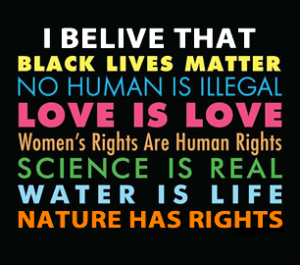The Politics of Hair
My friend Chelsea has a great new post on her blog The Phenomenology of Hair I wanted to highlight, about a recent experience of hers while being a stylist here in the big apple. It’s titled “On fear and trembling in the hairstylist’s chair…” While I must admit that I don’t think much about hair and its politics, mostly since the last time I had a haircut was, well, last century.
Regardless, her post definitely gave me a lot to think about, especially the tensions of balancing multiple identities as a grad student trying to complete a PhD. For example, when’s the last time you thought about the Hegelian master-slave dialectic and getting your bangs trimmed in the same breath? Well, not you have a reason to! And I share some of her concerns about wrestling with the academics of critique and, especially at a place like The New School, the seeming endless politics of the negative critique.
Anyway, enough of my rambling. Here’s a teaser from her post:
I often have trouble talking, or really writing, about doing hair with much analytical sophistication. I generally brush off the topic by saying I have nothing interesting to say on the matter but, if I’m honest with myself, it’s that I’m too close to and too invested in doing hair. I love what I do and I worry that if I spend too much time analyzing it as a profession or cultural phenomenon or whatever the hell it is, I’ll somehow kill the joy in it by exposing all its attendant ugliness. It’s not as if I, and all the other hairdressers out there, aren’t aware of the problems associated with the work we do: our complicity in selling unattainable beauty standards, our lack of benefits, the damage the job does to our bodies over the years. But there are also so many fantastic things about our jobs. One of the tragic truths about academia is that it teaches us to tear down all the edifices without ever showing us how to build anything in their place. Going forward, I want to learn to think and write about what I do in a way that isn’t focused on just critique, but rather on valuing and supporting the field while also not shying away from some of its harder truths…
I encourage everyone to run over and read the whole piece here right now.


